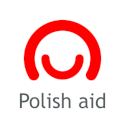Argonauts

Development and mobility programme for Polish civil servants

Funding sources
The project was funded within the framework of the European Social Fund Operational Program POWER (Knowledge – Education – Development), Priority IV. Social Innovation and International Cooperation, Action 4.2 International Mobility.
Project purpose
The main goal of the project was to reinforce the competences of the management staff of public administration institutions, in order to create and implement, in a most effective way, the best practices regarding public affairs management.
Beneficiaries
The project was to support both the public administration institutions and the government agencies. The individual participants of the project were Polish citizens employed in a public administration body (sending institution) who have experienced and diagnosed a certain (precisely described) challenge or problem in their workplace and wished to find a possible solution during the study tour abroad. Institutions sending the officials to take part in study visits were referred to as public administration in the program. The institutions employing the participants of the project had to be active entities in the process of implementing or planning public policies.
The partners of the project were public administration institutions and organisations from the European Union countries. They served as host institutions.
Description
The core idea of the project was to provide the opportunity for Polish civil servants to conduct short (max. 10 days long) study visits or job shadowing in the selected public administration institutions and organisations in European Union partner countries, with the purpose of:
- gaining knowledge and skills to enrich participants’ professional experience and personal development,
- improving the quality of service of both institutions participating in the project by enabling sharing of best practices in public policies and management,
- expanding the capacity of the public administration to implement good practices,
- promoting knowledge transfer and networking in public administration.
Following the mobility scheme, participants had to submit a report describing the solutions with which they became acquainted during the visit abroad. The report should have analyzed the possibilities of their practical use (implementation feasibility) at the sending (home) institution.
Results
The project had been implemented since December 2015 and had been completed in April 2018. During that time 90 officials and civil servants participated in the project.
All the participants attended preliminary management sessions which prepared them for the exchange programme and transfer of the effects of a visit to their home institutions. During the after-return session, participants shared their experiences of the visits and prepared to introduce changes in their organisations. The session programme included:
- preparing the introduction of the change,
- change management methodology,
- methods of collecting information in managing organizational change,
- communication in change and communication plan,
- assertiveness tools in change,
- basic implementation methods of change management,
- stakeholder analysis,
- a strategy to deal with resistance in change.
Finally, all participants took part in summary sessions in the form of Open Space. The purpose was to exchange experiences in the implementation of the project and mutual learning as well their achievements.
Media
For more information concerning the project please visit:
- website: https://argonauci.ksap.gov.pl/pl/




















